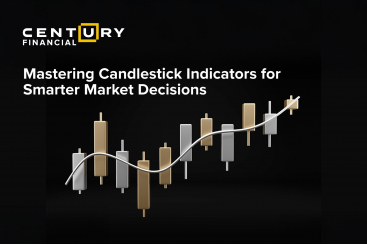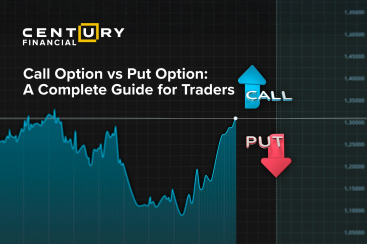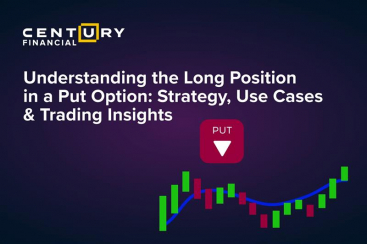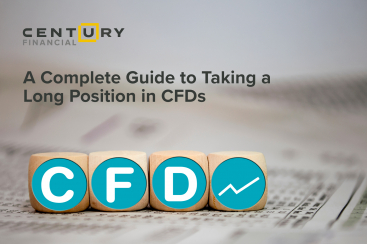Wednesday, May 15, 2024
How do Corporate Earnings bring movement to the stock price?
By Century Financial in 'Blog'

.jpg)
Before we examine how corporate earnings affect the firm's stock price, let's first understand what earnings reports are and why reading them is essential.
What Are Earnings Reports?
Earnings reports are like a company's quarterly report card. They show how much money the company made from sales (revenue) and where it was spent (costs). The SEC requires these reports, known as 10-Qs.
But keep in mind the quarterly financial statements are not audited
Significant companies might have 10-Q documents that are longer than 100 pages.
Publicly traded companies typically present their quarterly earnings reports four times a year, at the end of each fiscal quarter.
The specific dates for these reports can vary depending on the company's fiscal year, but they generally fall within the following periods:
Q1
January - March
(reported in April/May)
Q2
April - June
(reported in July/August)
Q3
July - September
(reported in October/November)
Q4
October - December
(reported in January/February)
What to read in the Earnings Report?
Reading the earnings press release is an excellent way to get a quick snapshot of a company's significant events Key focus areas should include revenue, net income, earnings per share, and EBIT or earnings before interest and taxes.
Ask the following questions:




Once you have a rough idea of the company's performance, it's time to analyze and check how the stock prices will react to the Earnings Report.

When a stock's performance is on an upward trend and its quarterly earnings are positive, you may think its stock price will increase. However, the stock price could fluctuate due to positive earnings or even a fall in market value.
That may sound counterintuitive. Why wouldn't investors respond positively to the news by buying more shares of a company's stock when it produces positive earnings growth?
The answer is market expectations. If the company makes money during a quarter and secures a profit, but investors are expecting blowout earnings, the failure to meet those sky-high expectations can cause a drop in the stock price.
If a company reports earnings vastly different from expectations, it's called an earnings surprise. That shock can cause a stock's price to move up if earnings exceed expectations or down if earnings fall behind expectations.
Another reason a company's stock price can fluctuate on positive earnings is if it revises its outlook on future earnings, doesn't provide forward earnings guidance, or has expectations of its future bottom line.
Heard of “Buy the rumor, sell the news"?
It means market participants trade on an expectation of good news, which tends to position a stock value higher. When the news comes out, the stock could peak, and some investors might consider selling because the stock tends to fall.
If a stock's price rose through the quarter on analysts' positive earnings guidance, the good earnings often get priced into the stock before the earnings announcement.
Conversely, if earnings beat guidance, the company performs better than expected. Beating the guidance causes more investors to jump on the bandwagon and buy more stock.
For example, recently Apple shares gained ground in premarket trading on 3rd May 2024 after the company posted March quarter results that weren’t as bad as the market had feared.
.png)
Apple Daily chart
.png)
Source : Century Trader Platform
Another example is NVIDIA
Nvidia reported Q4, 2024 earnings that beat Wall Street’s forecast for earnings and sales.
Nvidia shares rose about 10% in extended trading.
.png)


You can see here a rise in share price since the quarterly earning bet the market expectations.
NVIDIA Daily chart
.png)
Source : Century Trader Platform
Can You Use Historical Earnings Performance to Make Future Decisions?
Have you read the disclaimer before, “Past performance is not indicative of future results?”
Historical performance is a lagging indicator that provides investors baseline knowledge to judge a stock's future projections.
Although not fully proven, analyzing a company's past performance can help investors identify trends and patterns that can be used to make informed decisions about the future. Historical earnings can also be compared to industry benchmarks and competitors better to understand a company's position in the market.
The Bottom Line
Earnings reports are essential, but don't focus solely on the numbers. The key is how the company's results compare to market expectations, which drives stock price changes.
Additionally, please pay close attention to the company's forward-looking guidance, as it offers clues about the future. If you are taking a position on either side, it would be advised if you hedge your position in the opposite direction since there is volatility and fluctuation in the stock price experienced during this period.
We also have a webinar that discusses the tools and techniques investors can use during earnings analysis. Contact us and speak with one of our representatives to take advantage of such opportunities in the market.
This marketing and educational content has been created by Century Financial Consultancy LLC (“Century”) for general information only. It does not constitute investment, legal, tax, or other professional advice, nor does it constitute a recommendation, offer, or solicitation to buy or sell any financial instrument. The material does not take into account your investment objectives, financial situation, or particular needs.
The opinions expressed by the hosts, speakers, or guests are their own and may change without notice. Information is based on sources we consider to be reliable; however, Century does not guarantee its accuracy, completeness, or timeliness and accepts no liability for any loss arising from reliance on this content.
Trading and investing involve significant risk, and losses may exceed initial deposits. Past performance is not indicative of future results. CFDs and other leveraged products are complex instruments that may not be suitable for all investors. Please ensure you understand how these products work, the associated risks, and seek independent professional advice if necessary.
Century is licensed and regulated by the UAE Capital Market Authority (CMA) under License Nos. 20200000028 and 301044.
Please refer to the full risk disclosure mentioned on our website.









.png)
.png)
.png)
.png)


